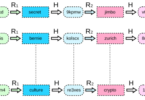When it comes to consumers, they will be additional focus on everything they purchase, be it a normal door knob or going for something technical like the routers. But this is not the case when it comes to Net marauders as they indicated that these devices are becoming the prime target for creating mischief. According to the Incapsula researcher Ofer Gayer, there has been a huge increase in the malwares that are designed especially for the home routers. He further added that it is a common seen to see a new vulnerability in the routers of a vendor.
They are very soft target for hacking process to be conducted. According to Andrew Conway, who is a threat researcher at Cloudmark, most of the time home router turns out to be the soft belly for the internet. He also added that that these routers were never designed keeping high security components in mind. Once the home router has been installed, updating the device usually never happens. Most of the time even after discovering the vulnerability a patch work is not sending to the vendors.
Even one might say that routers are often soft target despite the kind of setting that is put by the user can increase the level of protection and might even restrict any hacking action. In this scenario a user needs to on their local network before accessing and making any changes in their router setting. According to the discovery by Incapsula, one of the router makers has installed as so called backdoor to all its products which makes it easier for the company to service their products.
But nothing can do hidden from the hackers, they were able to locate the work that has been done by the maker and they herded many routers together to create a distributed denial-of-service attacks. Gayer added those today routers are built strong to be able to create a significant denial-of-service attack.
The routers can be compromised in many different ways through the home network without the need of actually getting into it through the backdoor. This type of forgery is called cross site request. This starts when the user is redirected to a malicious website, mainly through some type of phishing email. This malicious site will use the browser to send specific request to the home routers. Router will consider this as a request sent from the user. Naive is a term that can be used for home routers.
Once the hacker is able to open up the communication channel between the user’s browser and the router, almost all the options will become available to them.
It is easy for them to change anything, including changing the DNS server, make changes in the firewall setting as well as go to the extent of changing the admin password. Increasing number of hacking instances around the world have raised the security concerns not only among the consumers but high end companies and politicians as well.






